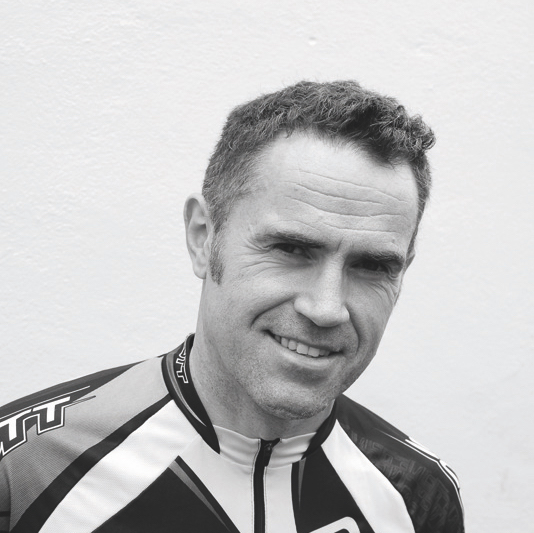Without health you can’t get fitter and without fitness your performance won’t improve. If physical and mental health is therefore so essential to cycling, how can you complete the circle and use cycling to look after your physical and mental health?
Here’s five pointers to boost the health-fitness-performance cycle:
- Biking improves your mood - use this benefit when you need some free space, to clear your head or when mulling over a problem.
- If you ride in all weathers you'll be used to the hardship of winter and the beauty of summer. Work with the seasons and build a mind and body that's not afraid of weather.
- Doing sport with your friends, spouse and/or significant others helps to build a lifestyle centred around that activity. By making cycling a part of your life it's easier for those around you to also join in and build a healthy relationship with exercise.
- Stress, weight and blood pressure all tend to reduce with regular exercise. But there's no need to train at pro level to be mentally and physically better off .
- Riding does not make you Superman - you may get coughs and colds - so beware not to overdo it when you're below par. When your health is low, your mileage should be too.
The ABC of health
Much of the material we cover in these fitness articles concerns the performance improvements you can get from the use of various training regimes, nutritional items or equipment. Performance is the top of the cycling triangle, with fitness in the middle and health at the bottom. This article is aimed at the base of that triangle.
This three-tier schematic can also be used to reflect the participation levels, with more riding for fitness at the bottom of the triangle and far fewer at the performance, or competition peak of the triangle. So, it's pertinent to look at cycling from the perspective of the lowest level, where numbers are greater and where health is the name of the game.
A is for absenteeism
Most of the time you'd hope that your cycling makes you a healthier person. It gives you a way to stay trimmer than most and does your general health a good turn. Yet there are some people who seem to think that fit folk are always getting ill.
Granted, those who push themselves too hard and too easily pick up every bug going when winter rolls around. However, a study in the Netherlands with more than 1,200 subjects observed over a three-year period, backs up the common sense idea of sporting activity as a positive lifestyle habit.
Data from the study showed that those who did sporting activities take sick leave significantly less than inactive co-workers. Within the first five days of sick leave, active employees recover faster than inactive ones. The data showed that sedentary jobs are even more affected by this 'active people skive less' phenomenon. So give yourself a pat on the back and tell your boss: over a four-year period those employees active in strenuous sports had 25 fewer sick days than those who weren't. And, if you look at those who never did any kind of sport, you'll find that they take 50 days more sick leave.
B is for brain health
The human body was designed to move and do activity. Experts propose that the thrifty genes of our hunter-gatherer ancestors are used when we exercise. Without reductions in glycogen, a constant supply of food as is common in the developed world stalls the natural feast-famine cycle.
There's a minimum of activity to ensure cycling of energy processes - a healthy body needs exercise. Similarly, 'anima sana in corpore sano' - that is, a healthy mind in a healthy body. Your brain needs exercise - research shows that as fitness levels increase depression is reduced and wellbeing improves.
If you ride your bike you'll improve your wellbeing - a study on those suffering depression show that just 30 minutes' moderate intensity helps improve mood and wellbeing. Biking can make you think better and reduce stress.
C is for coupling
One of the additional benefits of cycling is the tendency of it to help your spouse or partner also to become more active. Data shows that highly active older men are three timesmorelikely to have a similarly active spouse. Married men and women tend to exercise more than those who are single. It is unclear if this phenomenon also applies to younger age groups, but a person who regularly makes time for exercise may show those around them how easily it can be dovetailed into the day.
Riding can make you a better worker, improve your mood and help to encourage those around you. These benefits apply directly to the health section of the triangle, and are much overlooked in the performance-focused, carbon-fibre obsessed racing scene where power, pole position and the peloton take priority. Get out and ride today - you have scientific proof that it does you and those around you a lot of good.

